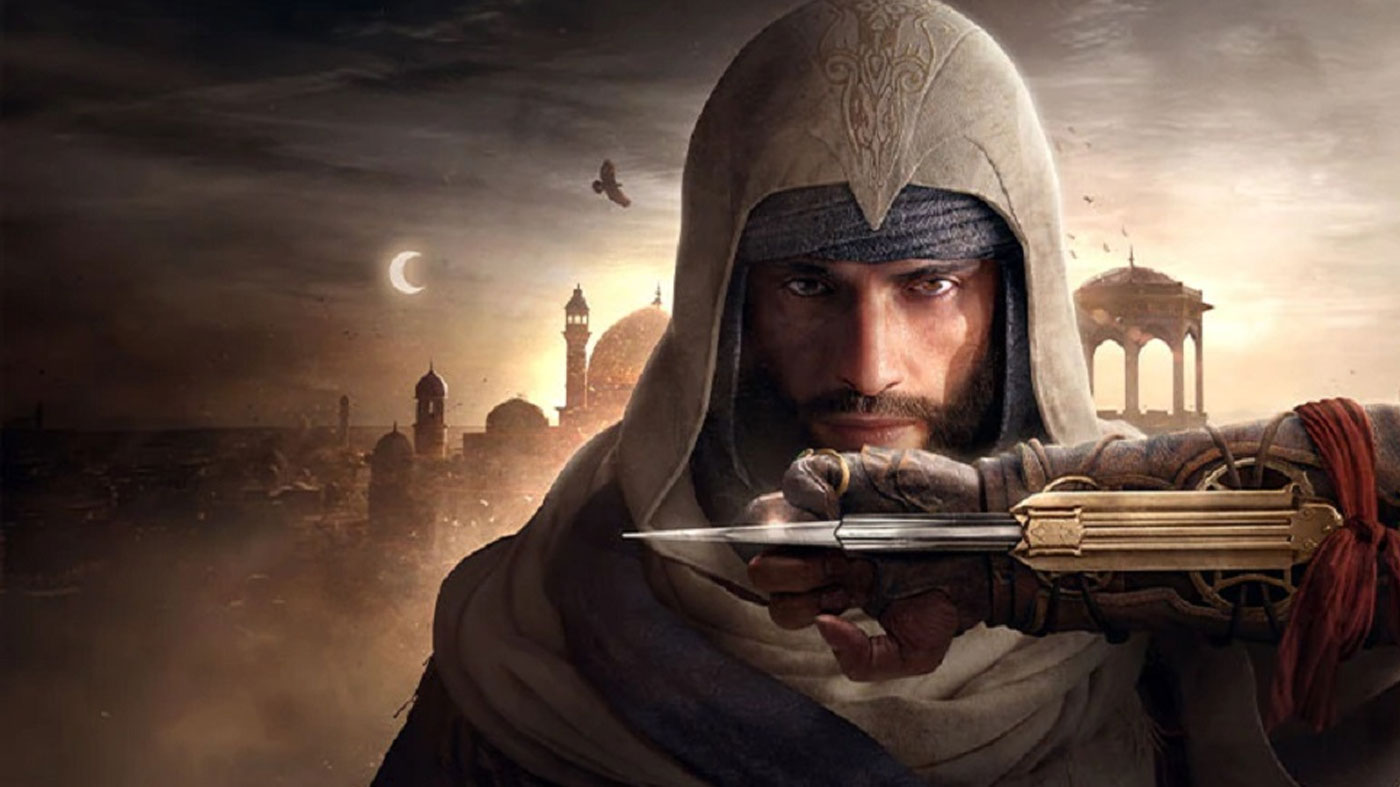Assassin’s Creed Mirage takes place twenty years before Assassin’s Creed Valhalla and around nine hundred years after the events of Assassin’s Creed Origins. We play Basim as he begins his journey with the Hidden Ones, the group that would eventually call themselves Assassins. He, as expected, becomes embroiled in a silent war with The Order of the Ancients, a clandestine group that would ultimately become the Templars. Of course, people who played Valhalla will know that Basim is not all he seems. That aspect of his existence is explored in Mirage, albeit very lightly.
While I was intrigued as to how the plot of Mirage would play out as it started to get going, it does lose some steam about halfway through. Admittedly, we’ve had thirteen Assassin’s Creed games now with the same conflict playing out in each, and, as a result, Mirage does little to surprise. The plot is mainly engaging, but the series is reusing so many plot devices at this point that I feel it needs a refresh. It also does nothing to move the overarching story forward or tease what’s to come, which, after Valhalla’s ending, feels like a bit of a missed opportunity.
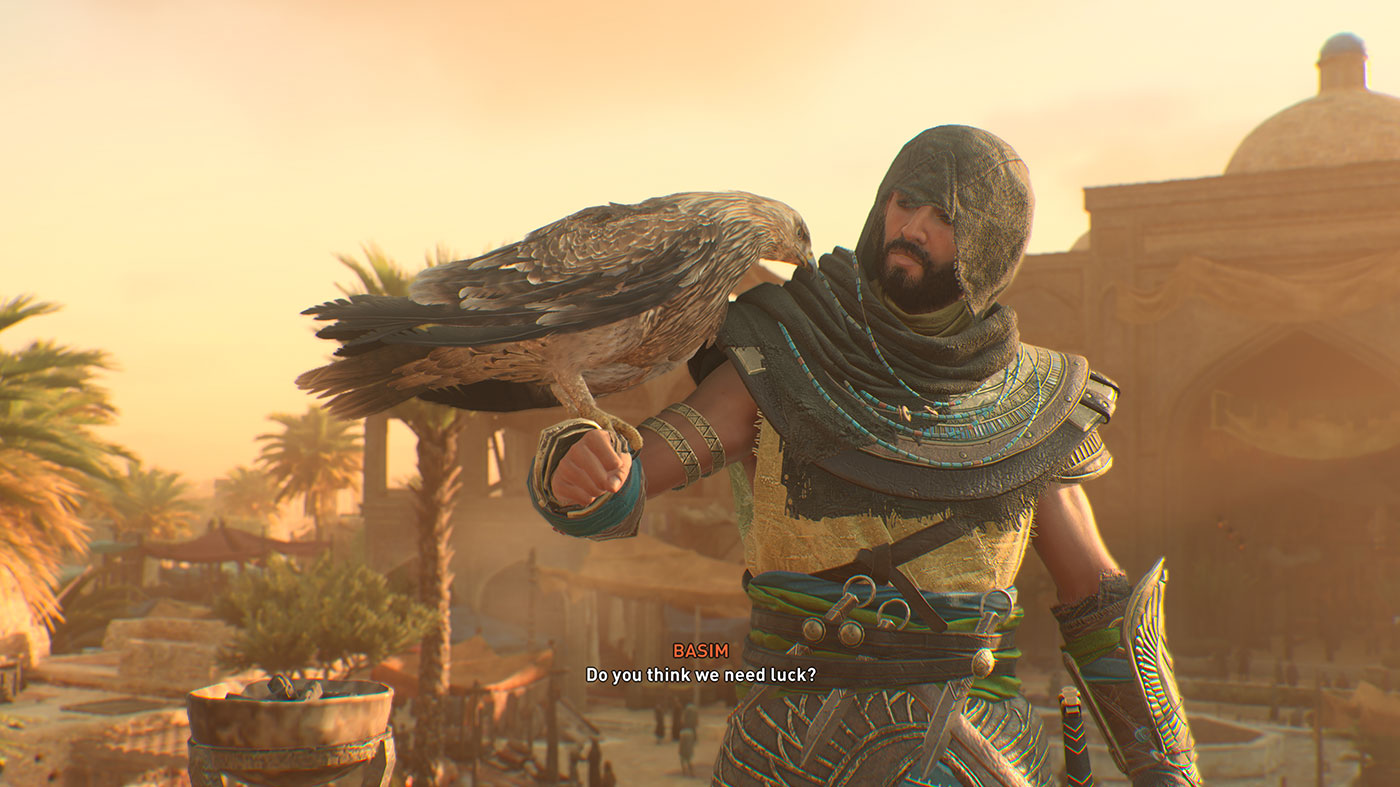
The big selling point of Mirage is, ironically, how much smaller it is than its predecessors. It sounds like a bizarre concept, but it’s a welcome honing of the formula. Initially conceived as DLC for Valhalla, Mirage was eventually expanded to offer an experience akin to games like Brotherhood and Revelations. It provides a single map to explore with manageable and approachable tasks to complete and no deep RPG mechanics or stat management.
That’s not to say that I didn’t enjoy Origins, Valhalla or even Odyssey, the latter of which dived headfirst into RPG territory. I enjoyed all those games. I love that Assassin’s Creed can adapt itself to be something slightly different in every game. But there’s a distinct beauty to Assassin’s Creed Mirage’s simplicity after the intensity and complexity of Valhalla’s experience. It feels fitting it’s releasing around the franchise’s fifteenth anniversary because it harkens back to the games that made the series so famous in the first place.
I say simplicity because Mirage doesn’t have power level requirements or even levelling or stats to pore over to make Basim stronger. Points are awarded for completing critical missions at specific points, and the skill tree has twenty-three skill nodes as opposed to Valhalla’s four hundred. All you have to worry about (and even then, you can quickly get through the game without doing so) is upgrading your gear and tools to better play the role of assassin.
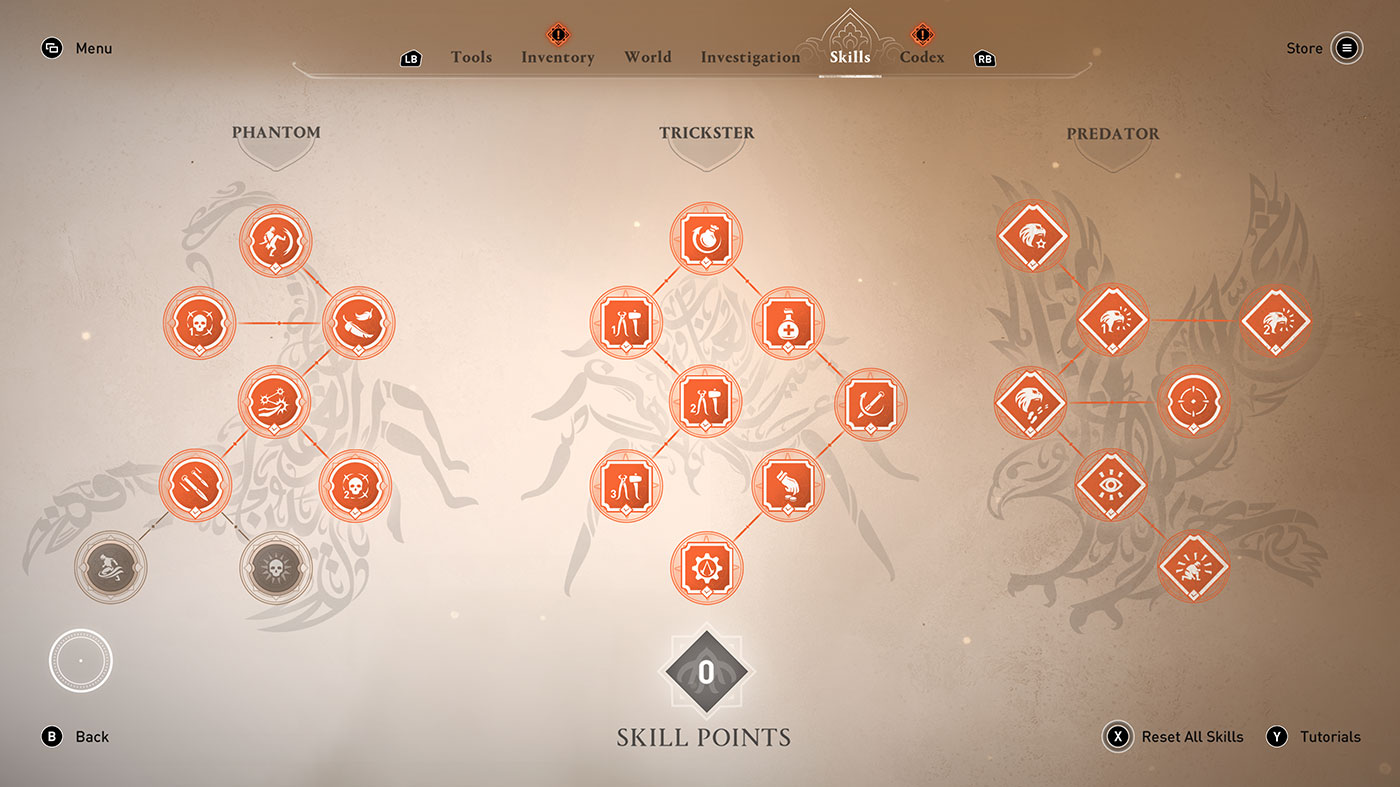
Tools are the bread and butter of your experience as Basim, and they are incredibly helpful. Basim eventually gets a throwing knife, a noisemaker, a smoke bomb, a blowpipe and a trap. Each item can be upgraded up to three times, with each tier of tool upgrade giving you options to customize how that tool behaves. You can make your smoke bombs flammable or make your enemies forget they saw you when they breathe the smoke in, for example. They’re always able to be respecced and can be customized to suit your play style.
Mirage’s plot essentially co-opts the cult investigation structure of the previous games and adapts it to run across the entirety of its runtime. This means that you can investigate certain aspects at your leisure while the story progresses linearly before eventually converging to a finale. In each of the investigations, you’ll do essential recon work before confronting a member of the Order in a more extensive and more open-ended mission.
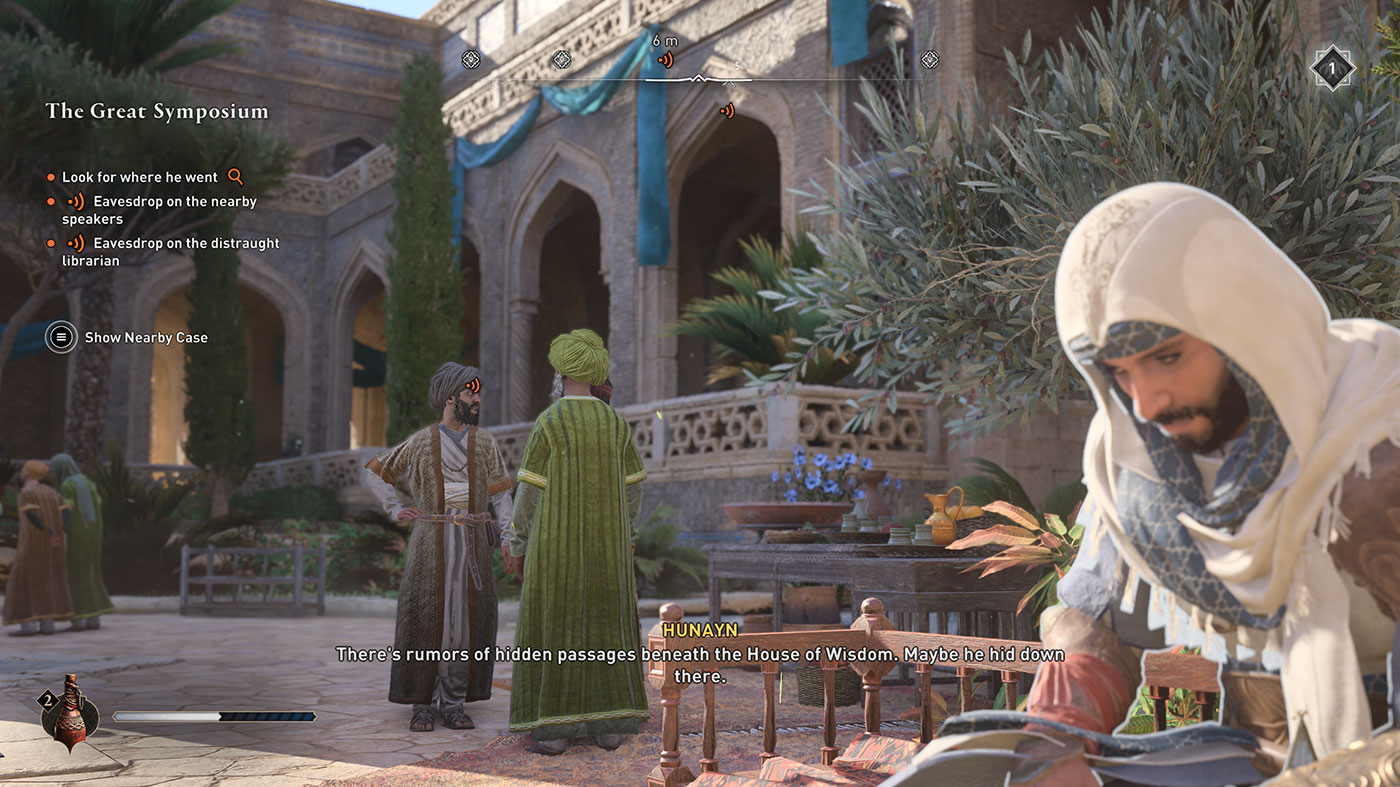
These missions are the cornerstone of Mirage and easily where the game is at its best. First established in Unity, these missions offer up large area to investigate, with many opportunities to uncover that’ll get you closer to your target. You might be able to bribe someone to find a way in or win an auction to get the attention of your target and gain an audience with them. You might find a note about a secret passage underneath the heavily fortified prison walls you need to infiltrate. There are around five to seven different ways to approach each mission.
THE CHEAPEST PHYSICAL COPY: $64 AT AMAZON
This approach to design for the key assassinations feels like a great way to mimic the style and structure of older Assassin’s Creed games but with the breadth and scope that newer technology and experience have afforded the developers. It’s not quite as open to the point where anything you can think is possible – like Tears of the Kingdom or even Hitman – but it does feel like there are options here for those who like to take an action-orientated approach, a stealth-orientated approach or both.
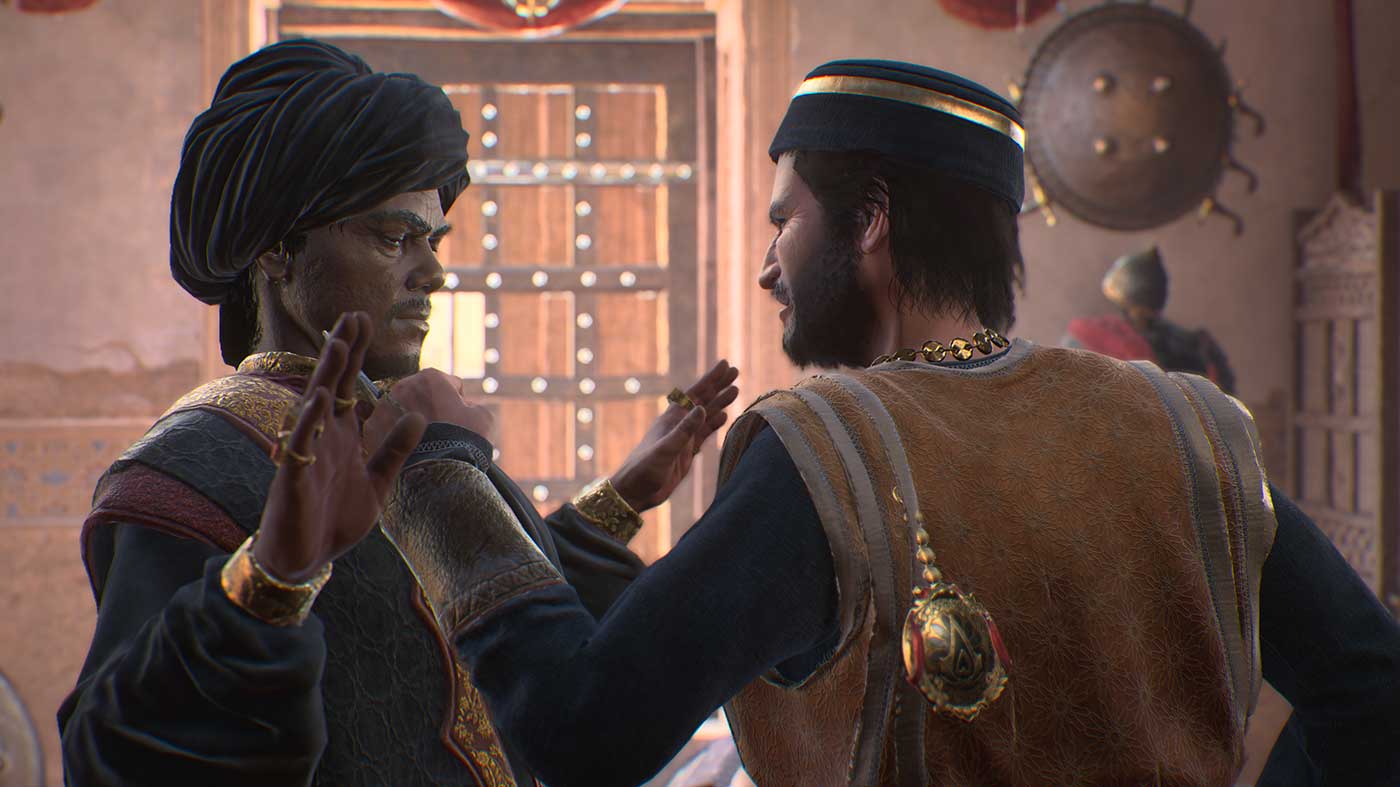
Stealth is the better option. Combat has less weight and complexity than Valhalla, but at the same time feels more dangerous. Enemies can swarm you quickly if you’re spotted, and most won’t wait their turn to attack you like in previous games. Basim can parry and follow up with a fatal attack, which feels better and more engaging than the countering system seen in the older games. But combat ramps up in intensity so quickly that it’s often better to stay hidden than create a commotion during your infiltrations.
But all this flexibility and openness in design can’t save Mirage from a major flaw that the series, for some reason, refuses to jettison. Tailing missions are back, and they’re just as tedious and as frustrating as in previous games. I challenge Ubisoft to find a way to make them exciting or remove them altogether. They’re exactly the same as when they first reared their ugly head in Assassin’s Creed II and haven’t evolved since – they’re awful and bring down an otherwise great main quest.
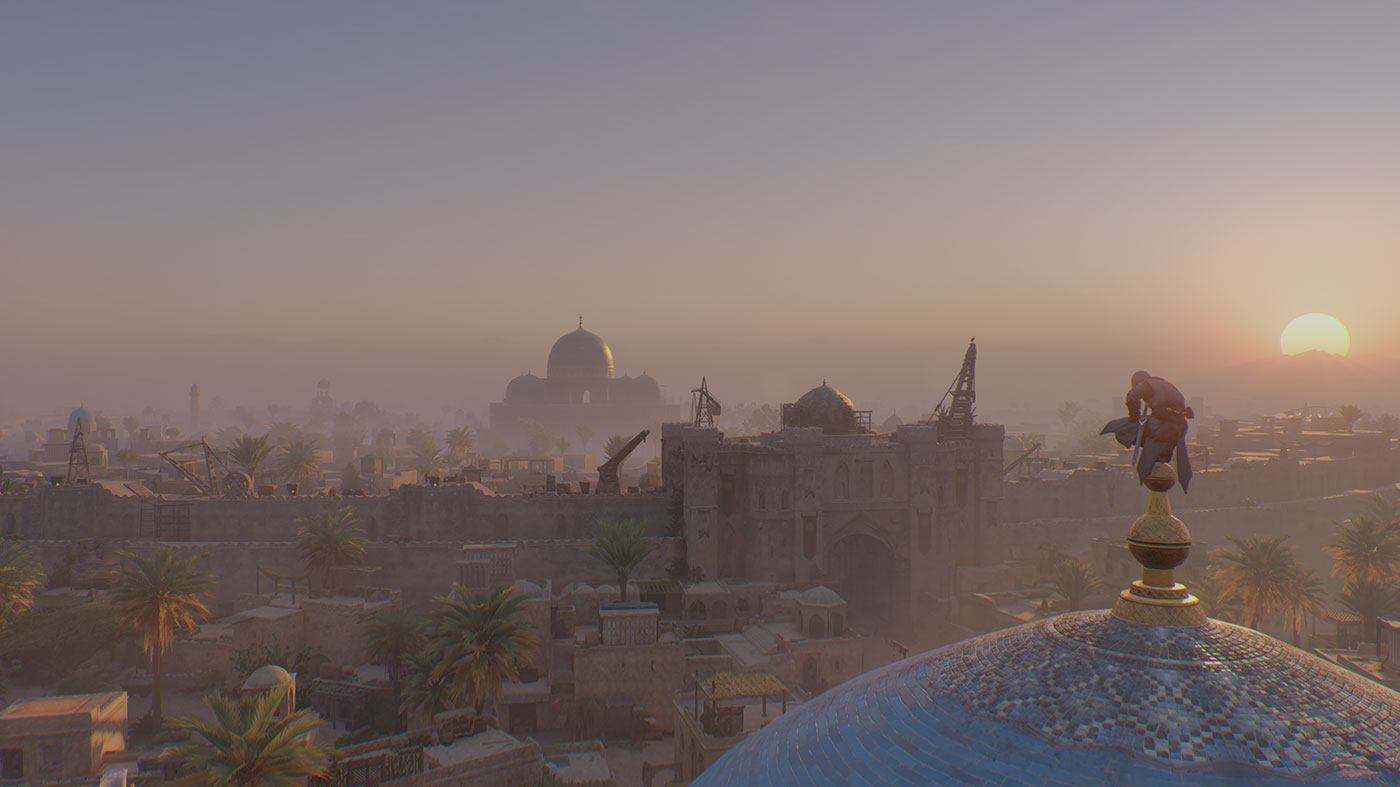
There are other activities when you’re not spending time on the main quest. However, most are collecting objects and handing them to NPCs for crafting components or rewards. Like world events in Valhalla, Tales of Baghdad are tiny side quests offering interesting stories that barely last more than five minutes. The problem is that, while it’s a great system to nab from Valhalla, there’s not enough of them in Mirage.
This is the main area where Mirage’s simplified scope becomes a bit of a double edged sword. The side content is numerous, but it’s less engaging than the previous games. I recognize the entire point of Mirage was to simplify things and harken back to the original three games, but the irony here is that in doing so, the same problems that plagued those games have reemerged. Given the sheer variety of experiences Ubisoft has to pull from, it’s a shame to see so little of that potential capitalized on.
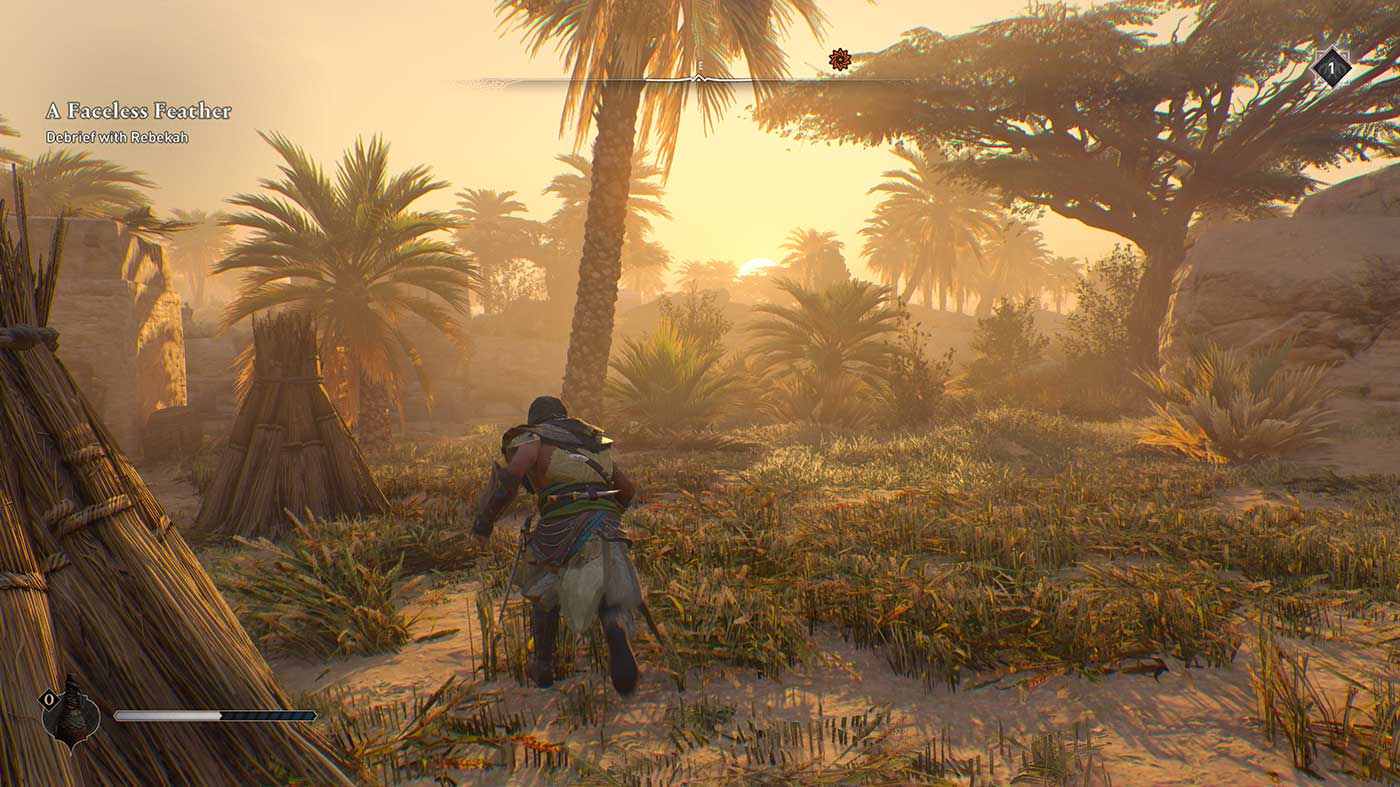
From a presentation standpoint, Mirage has the same strengths and opportunities as Valhalla. Baghdad has been brought to life admirably, though despite promises that crowds would be as dense as Unity, Mirage never quite reaches those lofty heights. While I admit that I miss climbing the towers, cathedrals and even colossal statues of previous games, there is, once again, something beautiful in the simplicity of the world that Mirage presents. Lip-syncing is still distractingly off enough to take you out of certain scenes. However, it’s not catastrophic enough to ruin the experience.



